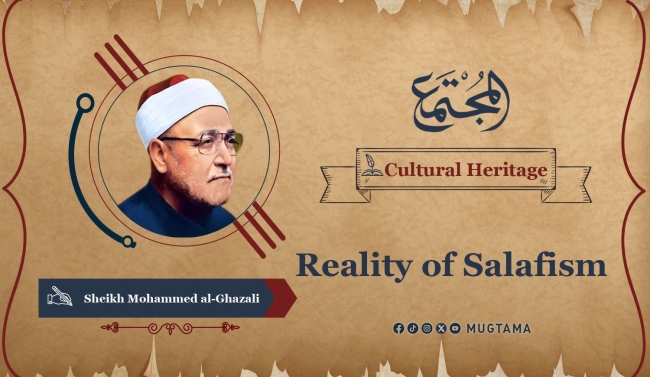Salafism is not a sect of people residing in certain regions of the Arabian Peninsula, living in a particular social manner. We reject this understanding and refuse to belong to it.
Salafism is an intellectual and emotional tendency tied to the best generations, deepening its loyalty to the Book of Allah and the Sunnah of His Messenger. It rallies material and moral efforts to raise the word of Allah, without regard to race or color. Its understanding of Islam and its work for it rise to the level of the religion's universality, timelessness, and alignment with human nature, and its foundation in reason.
I have seen people who understand Salafism as the jurisprudence of Ahmad ibn Hanbal, and this is a mistake. Ahmad’s jurisprudence is one of the intellectual lines within Islamic culture, which accommodates the Imams of different regions and others, no matter how many they may be.
I have also seen people who believe Salafism to be a school of strict textualism, and this too is wrong. The rationalist school is just as much a part of Islam as the traditionalist school, both drawing from and relying on Islam. Some of these people have recently named themselves “Ahl al-Hadith,” but their limited understanding of the traditions caused them to stir up discord even in the sacred mosque!
The Prophetic hadith is not the monopoly of a particular group; rather, it is a primary source for all schools of jurisprudence!
I have also seen people with a primitive mindset, who dislike modern scientific discoveries and fail to use them to support and protect the Islamic message! They reject appearing on television, for example, because they consider the display of images on the screen to be forbidden! They mock astronomical and geographical sciences and deny their importance! These people are neither from the Salaf nor the Khalaf; their minds need to be reshaped!
I have seen people who follow the most extreme and harsh opinions, issuing fatwas that only make life difficult for people, complicating their livelihoods and delaying the progress of believers in this world. They drag them back to the dark caves of history! These people, too, are neither from the Salaf nor the Khalaf. Their affiliation with religious sciences is questionable, and most of them suffer from a diseased conscience and mind!
I have also seen people who refuse the abolition of slavery! I told them: Don’t you know that these slaves are free people, the sons of free people! They were kidnapped by slave traders from their countries and sold unjustly to serve you, while they are in truth noble? What kind of Salafism condones such a calamity? And who are these scholars who opposed King Faisal's policy of liberating and abolishing their trade?
I have seen people say that the verse "Fight in the way of Allah those who fight you but do not transgress." (Al-Baqarah: 190) is only temporary. When we gain power, we should leave none of the disbelievers alive! I replied: This is not Salafism! This is the thinking of bandits, not noble and wise advocates of a righteous cause! Such people cannot be trusted to teach Islam to a group of students, let alone represent it in international forums and major assemblies!
We have seen those who engage with hadith, lacking jurisprudence, who then become jurists, and from there turn into politicians aiming to change society and the state according to what they narrate and perceive!
What is most surprising about this lowly religious thinking is that it knows little to nothing about governance constitutions, methods of consultation, financial dealings, class injustices, youth issues, family struggles, or moral upbringing.
Moreover, it knows nothing about adapting civil life and stages of development to serve the lofty ideals and grand objectives of Islam!
Weak minds know only trivial issues, over which they become agitated, emotionally involved, and through which they form alliances and enmities!
-------------------------------------------------------------
The Source:
-"The Constitution of Cultural Unity Among Muslims" Book by Sheikh Mohammed al-Ghazali







